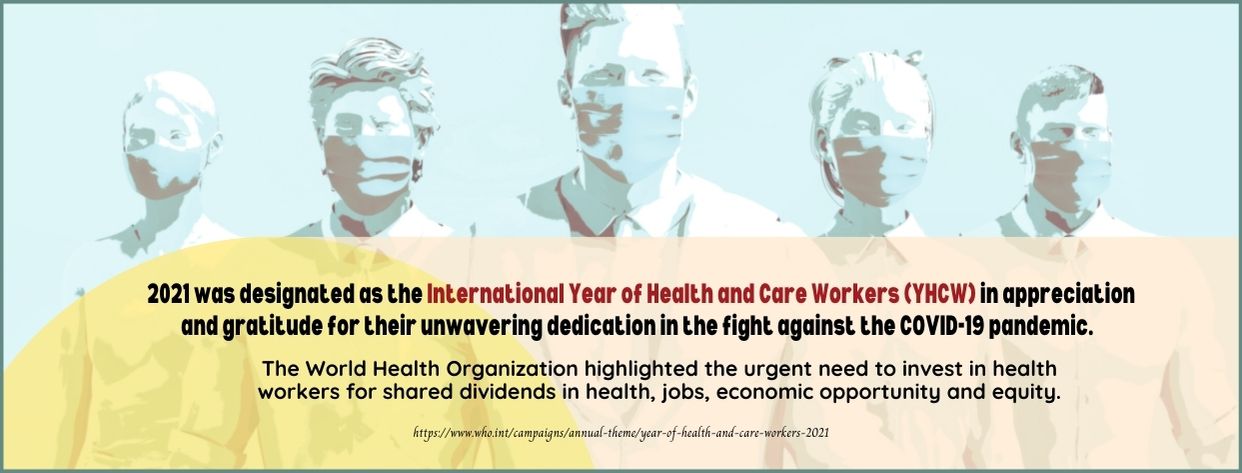Find Your Perfect School
Are you considering a short-term healthcare training certificate program? Are you wondering if it would help advance your career? Spending just four to 12 months at junior college campuses might not seem sufficient for entering medicine’s technical trades where patients’ lives hang in the balance. However, healthcare training certificates condense lab-based curricula to pack a depth of tangible clinical treatment skills into a shorter study.
According to BLS, healthcare occupations are expected to add approximately 1.8 million new jobs between 2022 and 2032, making it one of the fastest-growing fields. Short-term certificates are the easiest way for individuals not planning college stints to still sharpen their skillsets for an in-demand sector.
Benefits of Short-term Healthcare Training Certificate
Wider Array of Healthcare Job Options

Lack of postsecondary training greatly hinders people’s ability to advance beyond the most entry-level healthcare jobs like medical secretary, personal care aide, and nursing assistant. Luckily, the U.S. News & World Report shows a low average community college cost of $3,730.
Short-term healthcare training certificate programs are specialized in diverse professions from pharmacy technician to surgical technologist and emergency medical services. Patient care technician certificates are perhaps the broadest for performing basic care needs.
Students could choose phlebotomy to draw blood, veterinary assisting to cure pets, massage therapy for relaxing the tissue, radiology to take x-rays, cardiac care to fix broken hearts, and more. Completing short-term healthcare training may even lead to the NCLEX-PN exam to qualify as a Licensed Practical Nurse.
To further enlighten you with the topic, here are some good-paying careers you can have after completing a short-term health training certificate:
- Paramedics and Emergency Medical Technicians (EMT)
Paramedics and EMTs are the first to arrive on the scene of an emergency. They work in hospitals, ambulances, and helicopters, among other places. This occupation is in high demand.
EMT and paramedic training is not the same. Because they must first be EMTs, paramedics earn more money. EMTs do not use needles or administer medications, whereas paramedics do. This industry is expected to expand over eight (8) years.
The average annual median wage of an EMT and Paramedic is $53,560.
- Cardiac Sonographer
2D Echocardiograms are performed by Echo Techs, who analyze the patient’s beating heart and report the results to a cardiologist. The average annual median wage for this job is $78,210.
- Pharmacy Technician
Pharmacy technicians work alongside pharmacists to assist and support patients and ensure they receive the best possible care. A pharmacy technician’s average annual median wage is $37,790.
- EKG/ECG Technician
EKG/ECG Technicians collaborate with physicians in cardiology departments on heart-related issues. Stress tests and blood pressure readings are among the responsibilities. An EKG/ECG Technician’s average annual median wage is $49,484.
- Telemetry Technician
Telemetry technicians are trained to identify heart rhythms and work with nurses to inform and notify charge nurses of any potential risk factors in patients. For all populations, they provide individualized, patient-centered health care. The telemetry technician’s average annual median wage is $46,556.
- Telemetry Nurse Specialist
Telemetry Nurse Specialists and Telemetry Technicians are both in high demand in the healthcare industry. Telemetry Nurse Specialists collaborate with Cardiac Physicians and Cardiac Nurses to prescribe and manage medications and treatments. The most important part of this job is educating patients on disease prevention and health maintenance.
Phlebotomy units quickly become a viable career option for nurses seeking job advancement and professional development.
The average annual median wage of a telemetry nurse specialist is $95,179.
- Respiratory Therapist
Respiratory therapists measure lung function. They provide breathing treatments pulmonary testing and breathing masks and equipment to patients. Respiratory Therapists are in charge of life support and work on difficult cases. The average annual median wage is $70,540.
- Radiologic Technician
Radiologic technicians assist in the preparation of patients for radiologic procedures. They examine the bloodstream, organs, bones, and soft tissues of patients. The average annual median wage is $67,180.
- Cath Lab Technician
Cath Lab Technicians wear a leaded suit and assist physicians during procedures in cath labs. Duties include removing sheaths, wire entry procedures, and handling blood-containing instruments. The average annual median wage for a cath lab technician is $118,682.
- Vascular Technician
Vascular technicians examine patients’ blood vessels in the neck, groin, or legs for blockages or clots. They use an ultrasound machine and, in some cases, a vascular machine that runs wires to different parts of the body. The average annual median wage for a vascular technician is $83,014.
Higher Paying Work with More Autonomy

According to SmartAsset, workers with zero credits beyond their secondary diploma earn an average pay of $35,256, or $678 per week. Entering the healthcare hierarchy at this pay grade usually means little independence under supervisors’ watchful eyes. Short-term healthcare training certificate programs signal certain skill mastery to employers, which adds freedom and value.
Median wages for certificate-level healthcare professionals are currently $38,376, or $738 per week. In particular, LPNs report a median annual wage of $52,775 on Salary.com. Surgical technologists bring home a median income of $54,033. Paramedics snag median earnings of $53,560. Dietetic technicians receive a median compensation of $44,138. Other averages include $45,999 for medical billers, $49,860 for massage therapists, $37,060 for occupational therapy aides, and $44,820 for dental assistants.
Better Chances of Long-Term Career Stability

Getting a short-term healthcare training certificate can have long-term economic consequences by making medical workers more attractive to clinical facilities for job security. The Federal Reserve Bank of St. Louis reported that the unemployment rate for adults aged 25+ with some college education dropped from 4.9 in July 2021 to 3.6 percent at the end of the year 2021. That’s significantly less than the 6.2 percent rate without college classes. Healthcare is a particularly stable U.S. sector worth $3 trillion with 13 million employees.
The BLS predicts that healthcare jobs will have much faster-than-average growth of 16 percent overall by 2032. Most short-term healthcare training certificate occupations forecast hiring spikes by over 10 percent, including physical therapy aides, massage therapists, paramedics, LPNs, surgical first assistants, medical coders, and opticians.
Faster Routes to Healthcare Degree Completion

Short-term healthcare training certificate programs aren’t only a fast track to careers; they could also jumpstart further education. Columbia’s Community College Research Center found that 33 percent of certificate and associate graduates transferred to four-year colleges within six years. Accredited brick-and-mortar or online schools usually give certificate holders 18 to 45 credits that can carry over to hasten bachelor’s study to 36 months or less.
According to Forbes, bachelor’s graduates qualify for several high-paying clinical roles like medical perfusionist, drug trial manager, health administrator, pharmaceutical sales rep, sonographer, transplant coordinator, and hand therapist. Even if short-term healthcare training certificate students only transfer credits for an accelerated associate, the list of jobs mushrooms from dental hygienist to cancer registrar and respiratory therapist.
Those certain that a certificate will quickly launch a rewarding medical career can begin searching for a good college match. Regional or national accreditation is a must-have, but schools also featuring programmatic approval from bodies like the Commission on Accreditation of Allied Health Education Programs (CAAHEP) are best.
Stay wary of for-profit online colleges that boast certificates with few academic requirements, unusual flat-rate tuition, and little human interaction because they could be diploma mills. Some great colleges that advance careers in short-term healthcare training certificate programs include Herzing University, Pasadena City College, Virginia College, College of St. Scholastica, Aims Community College, Robert Morris University, and Washburn Institute of Technology.
Who Should Take Short-term Healthcare Training?
Short public health courses are designed for a wide range of people. Some are for people already working in public health and want to continue their education while working full-time, while others are for people who are brand new to the field. Candidates for public health short courses include:
Beginners: Short-term health training courses introduce the field to people interested in public health but are unsure if it is a long-term career path for them. A short introductory course can assist students in determining whether the subject is something that will pique their interest in the long run.
Working professionals: People already working in public health may want to consider taking a short course to expand their knowledge and provide better advice to patients and clients.
Master’s program applicants: Completing additional courses can demonstrate initiative and help a candidate gain admission to advanced degree programs, such as a master’s in public health.
Aspiring doctoral students: Short-term courses can help people considering enrolling in a long-term public health degree determine if they are prepared to return to school for a longer program.
Tips for Choosing the Right Short-Term Health Training Programs For You
If you’re thinking about taking a short course, here are some pointers to help you make the most of your time and money.
- Conduct extensive research
What is the first step in locating a short-term healthcare program suited for you? Conduct research! Visit various schools or organizations, note similarities and differences in programs, and ask questions. You can also speak with students who have completed the short course to determine if it is a good fit for you.
- Evaluate your goal
If you wish to advance your career in the health sector, you can ask your employer what topics they think you should study. Alternatively, look at job descriptions for your desired role to see what skills you’ll need. Then, look for short courses or training to help you achieve those goals.
Some healthcare employers might recommend specific courses relevant to the work at hand. Some employers may even pay for short-term training enrollment or let employees study on company time.
- Think about the school’s reputation
Short courses on resumes from well-known, reputable institutions can be beneficial. It would help if you researched the school or organization to ensure a worthwhile practice. If you’re thinking about getting a master’s or doctorate afterward, look into short courses offered by the schools you want to apply to.
- Review the pieces of information
Curriculum, format, price, and length are all factors to consider when taking a short course in public health. You’ll want to enroll in courses that fit your budget and schedule. If the courses are offered online, look for synchronous coursework that allows students to communicate with professors and classmates in real-time and asynchronous videos that students can complete on their own time.
Enrolling in short-term healthcare training will benefit you in many ways. The knowledge you’ll learn will help you advance your career or break into a new one. It will boost your resume and demonstrate to employers that you are interested in furthering your education and proving your commitment to the field.
Related Resources:

